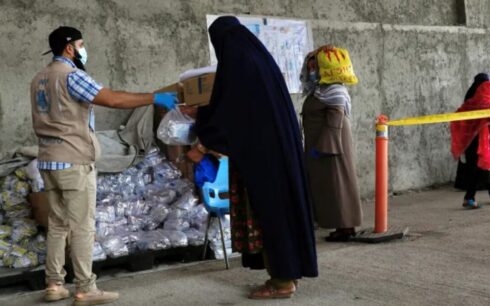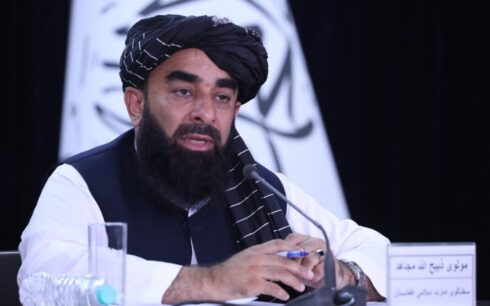The UN special rapporteur for Afghanistan, Richard Bennett, reported a continuing deterioration in the human rights situation in Afghanistan, with women and girls being “erased from public life.”
In his recent report, Bennett stated that the Taliban does not tolerate peaceful dissent and uses violence and the threat thereof to control and instill fear among the population with impunity. The report covers the human rights situation in Afghanistan from September 2023 to January 2024.
Bennett highlighted the harsh enforcement of the Taliban’s dress code since early January 2024, including the arbitrary and sometimes violent deprivation of liberty of women and girls who did not comply, or were perceived as not complying, with the gendered roles assigned to them in society. “Numerous women have been arbitrarily deprived of their liberty since early January 2024 for allegedly violating the Taliban’s dress code for women,” the report stated, noting that operations began in western Kabul and expanded to other areas.
The report also documented new restrictions on women’s freedom of movement, including directives in Khost and Zabul prohibiting women from visiting local markets or shops without a male escort. In Kandahar, officials from the Ministry of Vice and Virtue enforced travel restrictions on women at a bus terminal, and in Paktia province, women without male guardians were prevented from accessing health facilities.
Mohibullah Tayib, an Afghan diplomat in Geneva, said Afghanistan’s permanent mission will release a statement on the human rights situation in Afghanistan, offering views and recommendations for improvement.
The report also cited at least seven attacks against Shia Muslims of Hazara ethnicity between September 2023 and January 2024, marking a concerning increase. Women’s rights activist Rahil Talash criticized the international community for only expressing sympathies without taking practical action for the people of Afghanistan.
Bennett’s report also noted the shrinking civic space in Afghanistan, with the Taliban continuing to arbitrarily arrest and detain critics of their policies and leadership. It highlighted a high rate of suicide among young girls, especially in the south, with some reports indicating that 50% of suicides are committed by young girls. Allegations of violence and mistreatment, including sexual abuse against boys in some madrassas, were also documented.
The educational environment has seen a decline in quality and an increase in corporal punishment, with schools for girls above grade 6 remaining closed. Concerns were raised about forced and underage marriages involving the Taliban without legal consequences.
Taliban spokesman Zabiullah Mujahid commented on human rights protection through the prevention of “Israel’s oppression” and called for an end to the misuse of human rights issues.
Bennett told the UN Human Rights 55th Session that the discrimination against women and girls is of critical concern, framing it as “gender apartheid.” He plans to present more extensively on the matter at the next session of the Human Rights Council in June.





